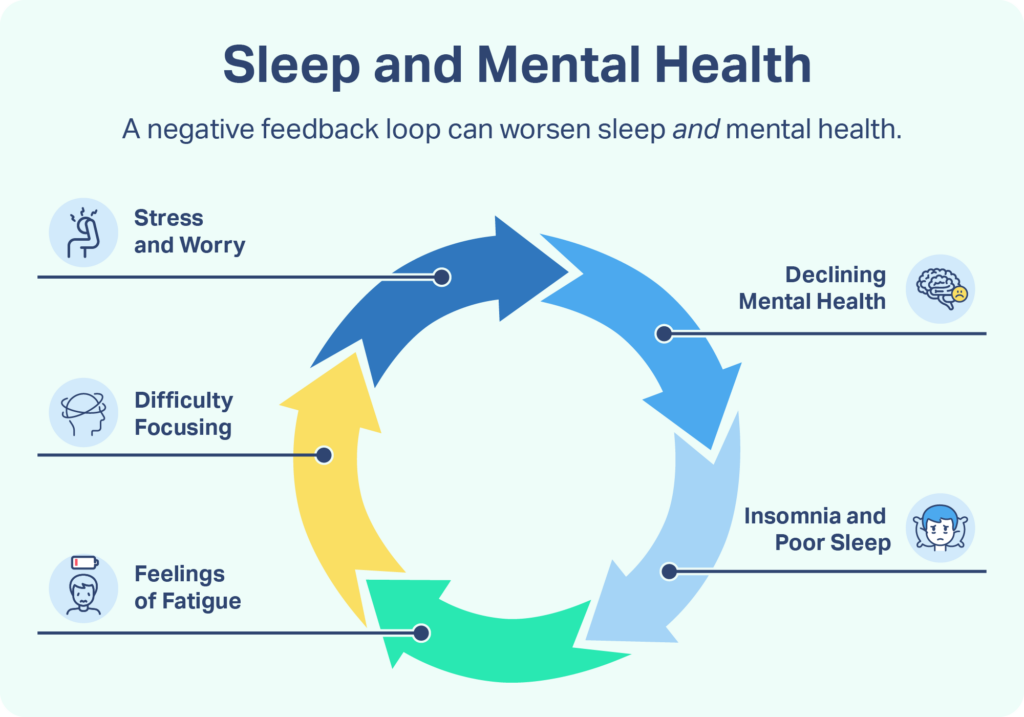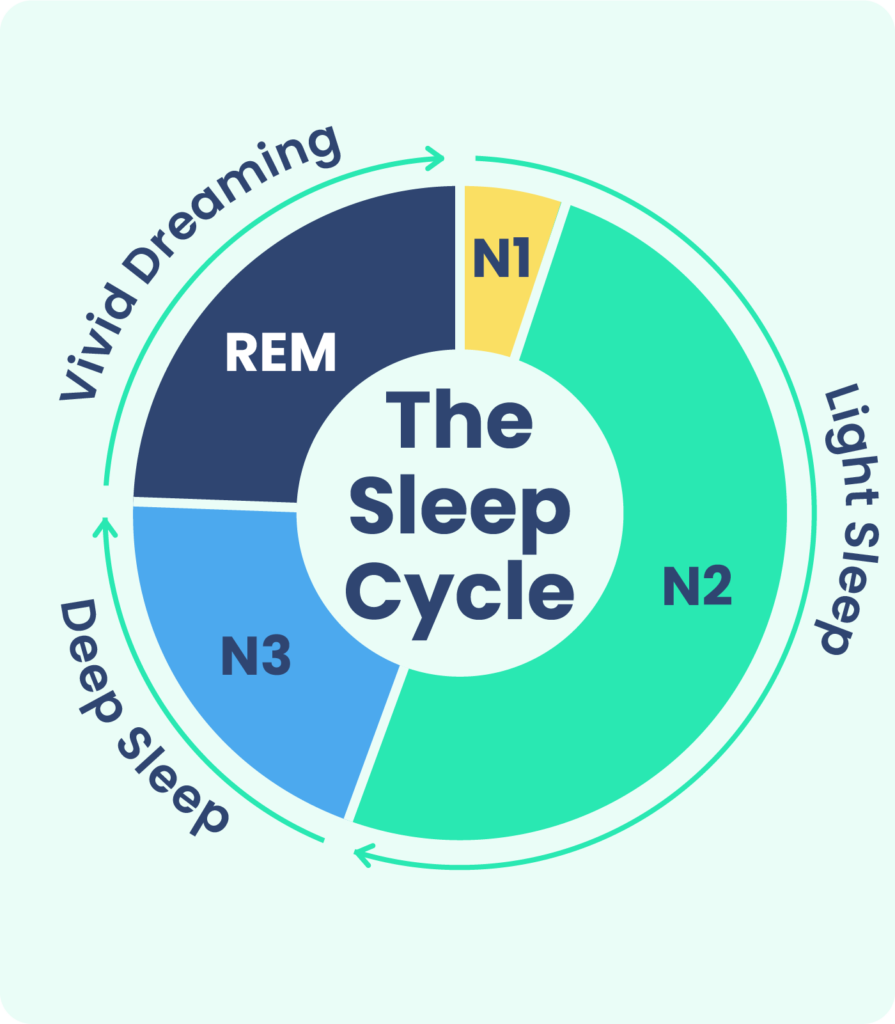In the realm of sleep science, one term that frequently comes up is REM. If you’ve ever wondered what this acronym stands for, you’re not alone. This article delves into the meaning of REM, its significance in sleep cycles, and why it matters for your health and well-being.
Understanding REM Sleep
REM stands for Rapid Eye Movement. It is a distinct stage of sleep characterized by quick, random eye movements, increased brain activity, and temporary muscle paralysis. During this phase, most dreaming occurs, making it one of the most fascinating aspects of human sleep.
The REM stage typically begins about 90 minutes after falling asleep and recurs multiple times throughout the night. Each REM cycle lasts longer as the night progresses, with the final cycle often lasting up to an hour.
The Science Behind REM Sleep

REM sleep is more than just a phase of rest—it plays a crucial role in various physiological and psychological processes. Here’s what science tells us:
-
Brain Activity: During REM sleep, the brain exhibits activity similar to when we are awake. This heightened activity is linked to memory consolidation, emotional regulation, and cognitive function.
-
Muscle Paralysis: One of the most intriguing features of REM sleep is the temporary paralysis of major voluntary muscles. This prevents individuals from physically acting out their dreams, which could otherwise be dangerous.
-
Breathing and Heart Rate: Your breathing becomes irregular, and your heart rate and blood pressure increase—similar to levels seen when you’re awake.
Why Is REM Sleep Important?
Research has shown that REM sleep is essential for several key functions:
-
Learning and Memory: Studies suggest that REM sleep helps consolidate memories, especially those related to procedural learning (like skills and tasks). It also plays a role in emotional memory processing.
-
Mood Regulation: Lack of REM sleep can lead to irritability, mood swings, and even depression. This makes REM sleep vital for maintaining emotional stability.
-
Brain Development: In infants, REM sleep is particularly important for brain development. It supports the growth of neural connections and cognitive abilities.
-
Physical Health: Chronic lack of REM sleep has been linked to various health issues, including weakened immunity, weight gain, and cardiovascular problems.
What Happens if You Don’t Get Enough REM Sleep?

If you consistently miss out on REM sleep, you may experience a range of negative effects:
-
Cognitive Impairment: Difficulty concentrating, poor memory, and reduced problem-solving abilities.
-
Emotional Instability: Increased stress, anxiety, and irritability.
-
Weakened Immune System: Lower resistance to infections and slower recovery from illness.
-
Sleep Disorders: Conditions like insomnia, sleep apnea, and restless leg syndrome can worsen without sufficient REM sleep.
REM Sleep and Dreaming
One of the most well-known aspects of REM sleep is its association with dreaming. Most vivid and memorable dreams occur during this stage. However, the exact purpose of dreaming remains a topic of scientific debate.
Some theories suggest that dreams help process emotions, simulate real-life scenarios, or reinforce learning. Others propose that they are simply a byproduct of the brain’s activity during REM sleep.
It’s also worth noting that while most dreaming happens during REM sleep, some dreams can occur during non-REM stages as well.
REM Sleep and Mental Health

Recent studies have explored the connection between REM sleep and mental health conditions such as depression and anxiety. Some findings suggest that individuals with depression may experience changes in their REM sleep patterns, such as an earlier onset or prolonged duration.
Additionally, researchers have found that excessive REM sleep may be linked to certain mental health issues, highlighting the importance of balance in sleep cycles.
How Much REM Sleep Do You Need?
On average, adults spend about 20 to 25% of their total sleep time in REM. However, this percentage can vary based on factors such as age, lifestyle, and overall health.
Children and adolescents tend to spend more time in REM sleep, which supports their rapid brain development. As people age, the proportion of REM sleep tends to decrease.
The Paradox of REM Sleep
![]()
REM sleep is sometimes referred to as paradoxical sleep because, despite being a deep stage of sleep, the brain is highly active. This contradiction—being asleep yet experiencing brain activity similar to wakefulness—has led scientists to explore its unique properties.
The term “paradoxical” also reflects the fact that the body is paralyzed, yet the mind is very much engaged. This duality makes REM sleep both mysterious and essential to our understanding of the human brain.
REM Sleep and Physical Health
Beyond its impact on the mind, REM sleep also plays a critical role in physical health. Research has shown that disruptions in REM sleep can contribute to:
-
Cardiovascular Issues: Studies have linked REM sleep disturbances to higher risks of hypertension, heart disease, and stroke.
-
Metabolic Problems: Poor REM sleep may affect glucose regulation and increase the risk of obesity and diabetes.
-
Immune Function: Adequate REM sleep supports immune system function, helping the body fight off infections.
Tips for Improving REM Sleep
To ensure you get enough REM sleep, consider the following tips:
-
Maintain a Consistent Sleep Schedule: Go to bed and wake up at the same time every day, even on weekends.
-
Create a Relaxing Bedtime Routine: Avoid screens before bed, and engage in calming activities like reading or meditation.
-
Limit Caffeine and Alcohol: Both can disrupt sleep cycles, especially REM sleep.
-
Exercise Regularly: Physical activity can improve sleep quality, but avoid vigorous workouts close to bedtime.
-
Avoid Heavy Meals Before Bed: Eating late can interfere with sleep and reduce the amount of REM sleep you get.
Conclusion
Understanding what REM stands for goes beyond just knowing the acronym. It opens the door to appreciating the complex and vital role that REM sleep plays in our lives. From memory consolidation and emotional regulation to physical health and mental well-being, REM sleep is a cornerstone of healthy living.
As research continues to uncover more about this mysterious stage of sleep, one thing remains clear: prioritizing good sleep habits is essential for a healthier, more balanced life.
Author: John Smith
Title/Role: Sleep Science Expert
Credentials: John Smith is a certified sleep scientist with over 10 years of experience in sleep research and education. He has contributed to numerous publications and works with healthcare professionals to improve sleep health for individuals and communities.
Profile Link: johnsmithsleepscience.com
Sources:
– National Sleep Foundation
– American Academy of Sleep Medicine
– Harvard T.H. Chan School of Public Health
Internal Links:
– Understanding Sleep Cycles
– The Importance of Sleep Hygiene
– Common Sleep Disorders
Meta Title: US Trending News: What Does REM Stand For?
Meta Description: Discover what REM stands for and why it’s essential for your health. Learn about REM sleep and its role in dreaming, memory, and well-being.
Featured Snippet: REM stands for Rapid Eye Movement. It is a stage of sleep characterized by quick eye movements, increased brain activity, and temporary muscle paralysis. REM sleep is crucial for memory consolidation, emotional regulation, and overall health.
Call to Action: Stay updated with the latest news on sleep science and health trends. Explore today’s headlines and learn how to improve your sleep quality.











More Stories
What Is Yodo Para Tiroides and How Does It Affect Thyroid Health?
How to Claim Your Joy in League of Legends: A Step-by-Step Guide
What is WSET? A Comprehensive Guide to Wine Education